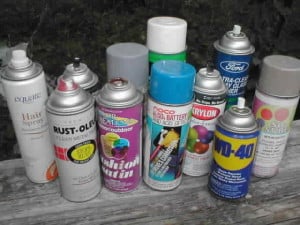Inhalant Addiction: Huffing, Sniffing, Bagging, Snorting
Inhalants can be found in commonly used products such as glue, markers, spray paints, gasoline, air fresheners, and more. Inhalants are commonly abused by children and adolescents and use can continue into adulthood. These products are often mistaken for being harmless due to their common applications, but they contain dangerous chemicals that may cause death after one application. After prolonged use, inhalant addiction may manifest.
Inhalants are applied by “breathing in” the chemical contained in an aerosol can or other solvents. They may also refer to applications by “huffing,” “sniffing,” “bagging,” or “snorting.”
Drug Effects
Once inhaled, the user may experience euphoria or a feeling of getting high. They may also feel dizzy, have trouble speaking, or trouble with coordination and moving. They may even experience hallucinations and delusions. The effects of inhalants are often fleeting, lasting seconds to minutes. Individuals tend to use multiple doses for a more lasting effect.
Inhalants affect the body similarly to alcohol. They act as a central nervous system depressant, depriving the body of oxygen and causing the brain to slow down and the body to work harder. Inhalants can be fatal, even with one dose.
Individuals who use inhalants for a long period of time can experience kidney, liver, and even brain damage.
Signs of Abuse
Signs of Abuse include:
- Loss of friendships
- Avoidance of social settings
- Having difficulty stopping inhalants
- Craving inhalants
- Ignoring daily responsibilities to take inhalants
Withdrawal Effects
Individuals who take inhalants over a long period of time can have withdrawal effects. Medically supervised detox from inhalants is recommended to prevent relapse and risk of death while using inhalants.
Signs of Withdrawal include:
- Convulsions
- Sweating
- Problems sleeping
- Loss of appetite
- Nausea
Treatment for Addiction
Inhalant addiction is serious, and it is important to seek inhalant addiction treatment as soon as possible. If you or someone you know is in danger of addition, there help is available. Water Gap Wellness seeks to identify the root cause of the addiction. There is a psychiatrist on-site every day, group sessions daily, private sessions twice weekly and outdoor adventures on the Appalachian Trail. If you or someone you know is suffering from an inhalant addiction. Reach out. Our trained medical and clinical staff will guide you along the way to recovery from inhalant addiction. Call today. 1-833-949-4673 or email: info@watergapwellness.com.




